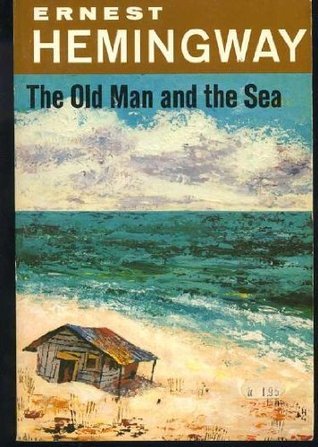This is a bit of a departure for The Warden’s Walk, as Ernest Hemingway‘s famous novella “The Old Man and the Sea” is not properly fantasy, science fiction, or historical adventure. It is set in 1950s Cuba and busies itself with the daily and realistic concerns of a humble old fisherman. I hope you will forgive me this detour. I do not expect it to become a habit for this blog. However, in my defense, the story has about it the aura, and some of the sensibilities, of a folk tale.

An ordinary man wages an extraordinary battle against a force of nature, equipped with only his wits, his hands, and his hope. As in much of fantasy and mythological literature, the forces of nature are only partially personified; the ocean is wild and unpredictable, but makes life possible on earth. Nature and humanity are at once separated by an unbridgeable gulf, and also linked in an unbreakable symbiotic relationship. And though Hemingway may not have seen it the way I do, I see in this an acknowledgment that both Man and Nature are subject to their common Creator.
It is good that we do not have to try to kill the sun or the moon or the stars. It is enough to live on the sea and kill our true brothers.
Santiago, the old man
But enough of grand themes. I do not love this story for any themes. I do love it somewhat for the atmosphere — the lapping of the waves, the slapping of fins on water, the salt breezes, the hot sun, the patched nets and stacked harpoons. But mostly, I love this story for its characters.
I may not be as strong as I think, but I know many tricks and I have resolution.
Santiago
*Minor spoilers for an old, short story*
I do not know how this story could be a better version of itself. It does exactly what it sets out to do, and in the process helps me to understand, sympathize with, and even love a person in very different circumstances from myself. After all, how similar am I to a poor old Cuban fisherman from the mid-20th century, who would rather die than lose the last great fight of his life? I would have cut the fishing line long before the first day was up. But I am not a lifelong ocean fisherman like Santiago.
He rested sitting on the un-stepped mast and sail and tried not to think but only to endure.
I love this old man, and his friend, the boy Manolin, who is competent and compassionate beyond his young years. I love how they consider suffering to be gain when in the service of each other. I love how their hands are rough but their voices tender. Kindness overflows in their interactions, and it is the sort of kindness that breeds strength, hope, and endurance.
And when the great battle ensues, in which Santiago stubbornly allows the great marlin to pull him dangerously out to sea rather than admit a long defeat by cutting the fishing line, I admired him even though I would never advise anyone to do what he did. His choice and reasons are his own. They were written believably and compassionately.
If the others heard me talking out loud they would think that I am crazy. But since I am not, I do not care.
Santiago
While the battle was costly, and in the end Santiago considers himself defeated, he nonetheless returns with his life, finds his home and Manolin again, and is content. And so was I, with them.
